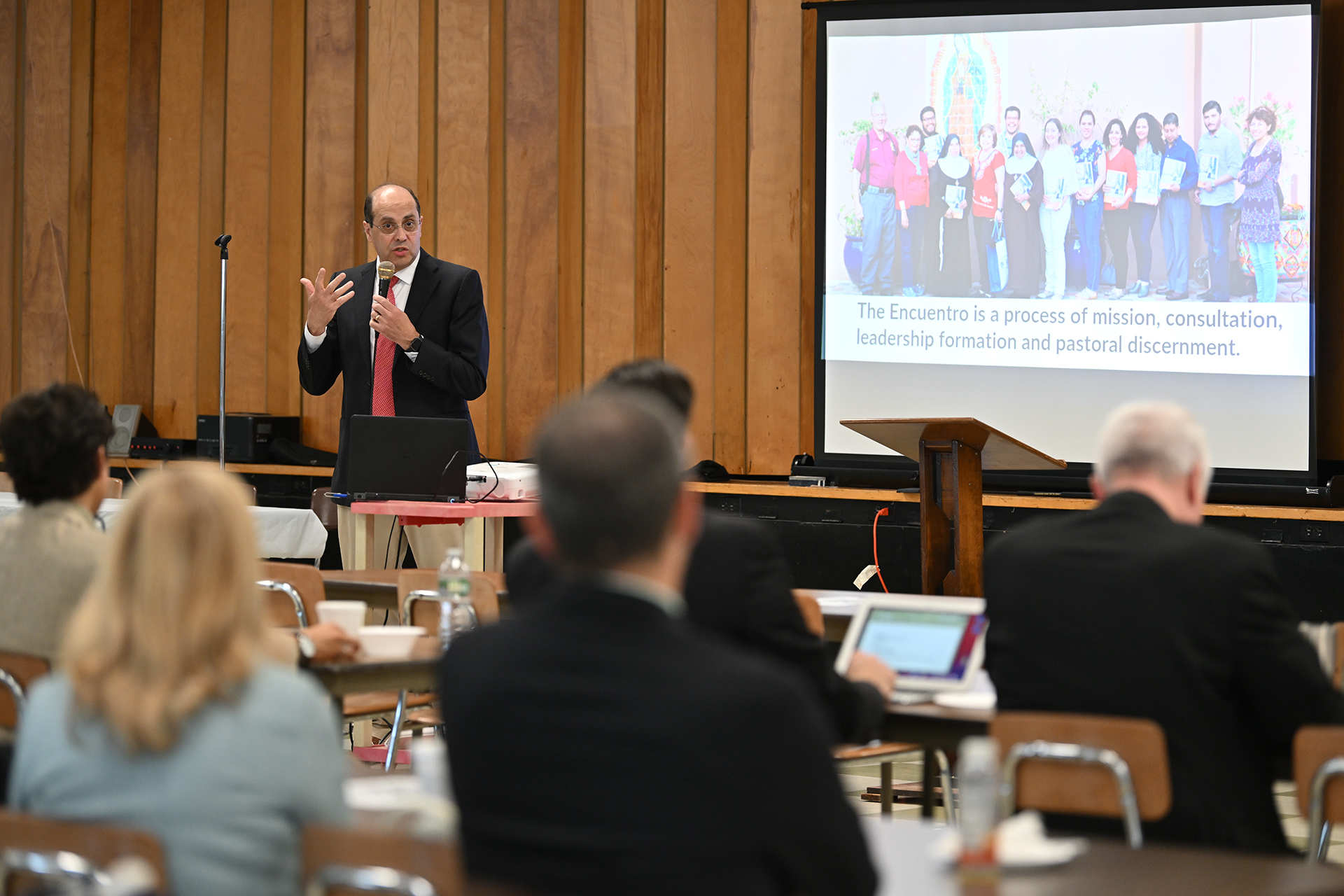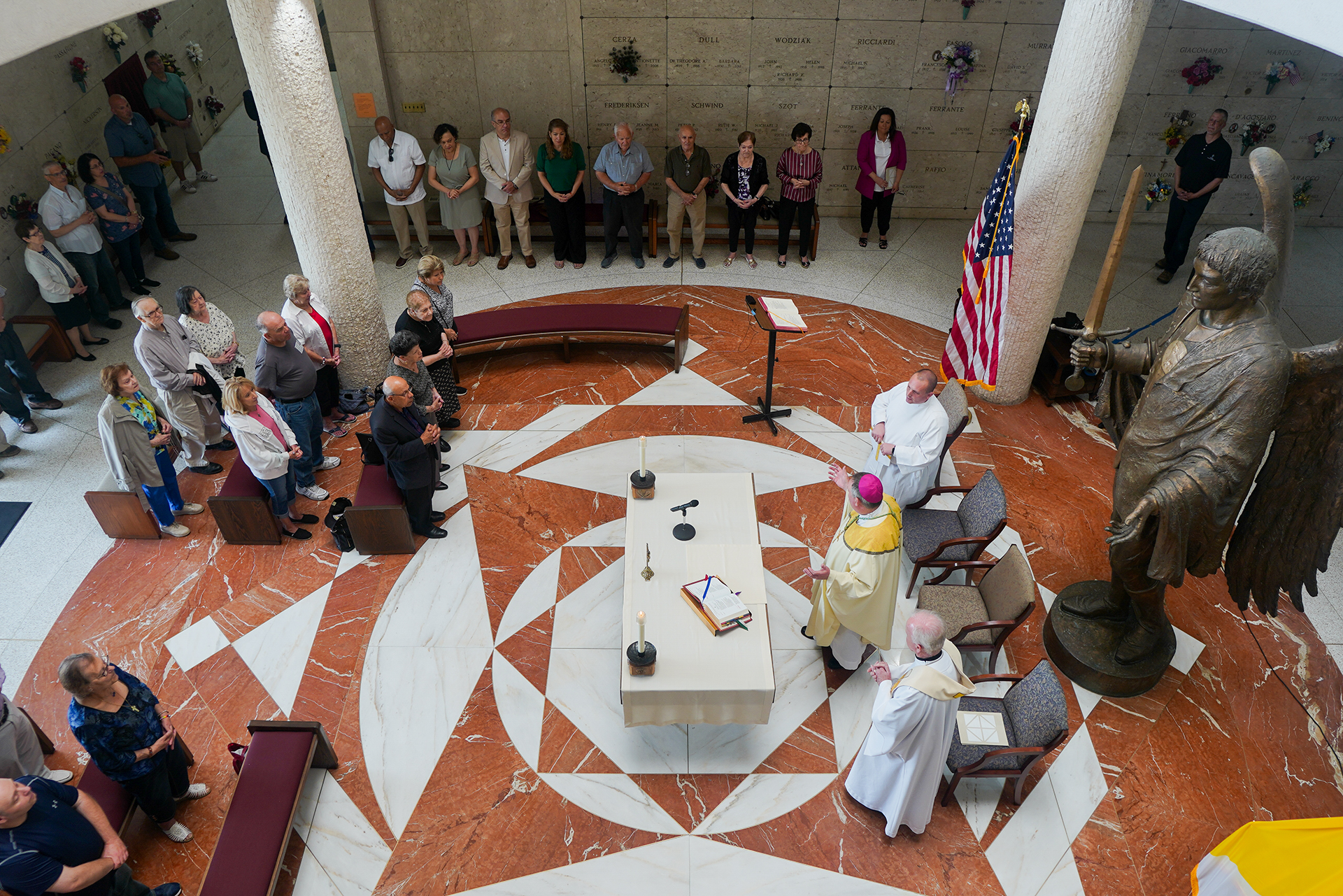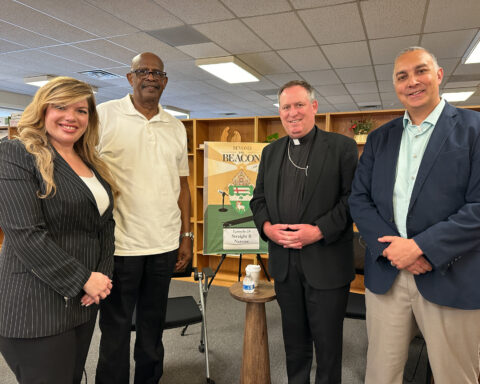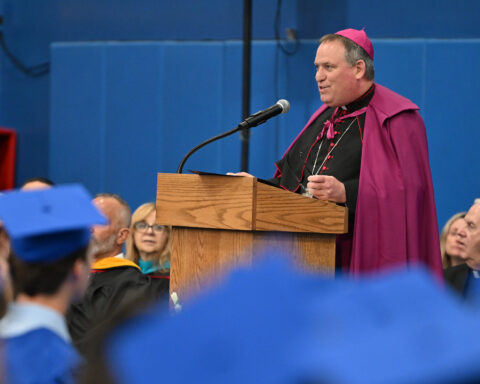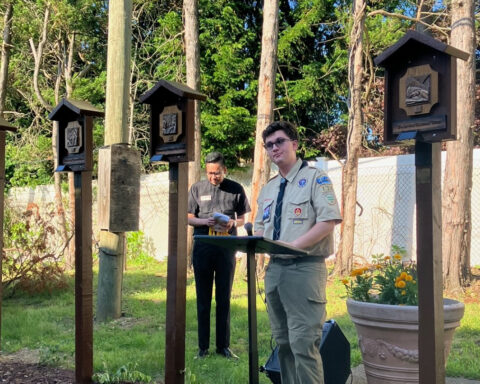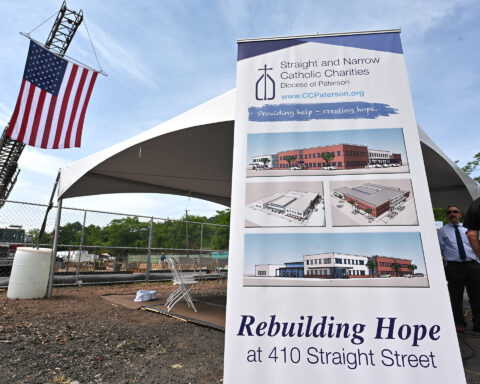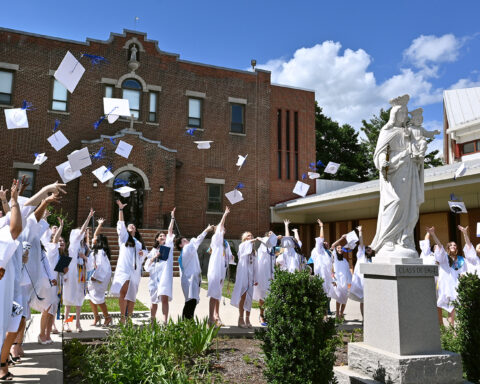The Church in the United States needs to build on its success in Hispanic/Latino ministry, continuing to create a culture of encounter with the living Christ in its ongoing efforts to grow the community of missionary disciples in the Spanish-speaking population.
So said Alejandro Aguilera-Titus, the lead staff for Hispanic ministry for the U.S. Conference of Catholic Bishops, who spoke on May 22 to leadership, priests, and deacons of the Paterson Diocese about the bishops’ “National Pastoral Plan for Hispanic/Latino Ministry: Missionary Disciples Going Forth with Joy.” He talked during two in-service sessions at the Pope St. John Paul Center in Clifton.
The Church fosters encounters with the living Christ by reaching out to the peripheries, accompanying one another, promoting justice and mercy, forming people in the Word of God, being nourished and transformed by the Eucharist, and being sent forth to proclaim the good news of the Gospel with joy, Aguilera-Titus said.
The Church’s success in Hispanic/Latino ministry comes from its “ability to engage the faithful in their lived realities, following the missionary example of St. Paul.” This ability stems from “the principle of ecclesial integration and inclusion.” Through this, “we bring individual communities into an established faith community through a process of welcome, belonging, and co-responsibility,” said Aguilera-Titus, quoting the document.
“The mission of the Church is to proclaim the Gospel, bring people to Jesus Christ, and build the reign of God. All the baptized have the responsibility to join in this mission of the Church as missionary disciples,” said Aguilera-Titus, also a nationally recognized speaker and writer.
The sessions were timely because the Hispanic/Latino community in the diocese is vibrant and the fastest growing. A Spanish speaker, Bishop Kevin J. Sweeney established a diocesan Office of Hispanic Ministry in 2021 to respond more effectively to the needs of the local Hispanic/Latino community.
The pastoral plan also calls for the Church to make Masses and other services available and accessible in Spanish. That’s important because the Eucharist “is the source and summit, the ‘fount and apex,’ of the Christian life, by which the faithful are nourished, ‘transformed into that which we consume,’ and strengthened for our mission as the Body of Christ in the world.” The Church also needs to welcome and celebrate “those spiritual devotions and cultural traditions that are distinctive and important for the local community,” the document states, according to Aguilera-Titus.
Aguilera-Titus was the national coordinator for the V Encuentro. It was a process of mission, consultation, leadership formation, and pastoral discernment that helped develop the pastoral plan.
Bishop Sweeney told Aguilera-Titus’ session with diocesan leadership, “We all have different gifts and talents. Some people are more administrative and others like going out into the streets to preach the Gospel.”
“When we think about the pastoral plan, it’s good to have that in mind,” said Bishop Sweeney, who said the sessions about the pastoral plan provided “food for thought. Who knows how the Holy Spirit will guide us and inspire us as diocesan leaders to serve God’s people.”
